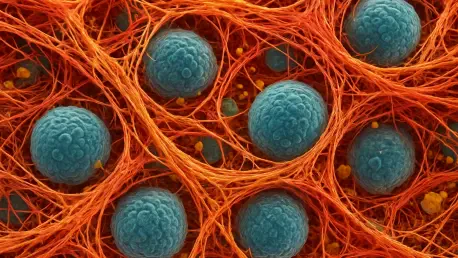
The alarming statistic that individuals with type 1 diabetes face a 4.29-fold increased risk of developing bladder cancer has sent ripples through the medical community, challenging long-held assumptions about the intersection of metabolic disorders and malignancies. With bladder cancer already

I'm thrilled to sit down with Ivan Kairatov, a renowned biopharma expert whose pioneering work in technology and innovation has pushed boundaries in medical research and development. With a deep focus on cutting-edge solutions, Ivan has been at the forefront of exploring focused ultrasound as a

Imagine a world where life-saving cancer treatments no longer require weeks of waiting for cell processing or come with a price tag in the hundreds of thousands of dollars, but instead can be administered in days at a fraction of the cost. This is the promise of in vivo CAR cell therapy, an

In a landscape where lung cancer remains one of the most challenging diseases to treat, particularly for rare subsets of patients, a new development has sparked hope among clinicians and affected individuals alike. Bayer’s recently approved drug, sevabertinib, marketed as Hyrnuo, has gained

What happens when the building blocks of life face destruction before they can fulfill their purpose, and how do cells protect these vital components during such a delicate process? Inside every cell, a precise mechanism unfolds where proteins, essential for everything from immunity to growth, are

What lies at the heart of life’s intricate design, shaping everything from a single cell to the complex tissues of the human body? The answer may surprise many: it’s not just the cells themselves, but the unseen network surrounding them, known as the extracellular matrix (ECM). This dynamic web of